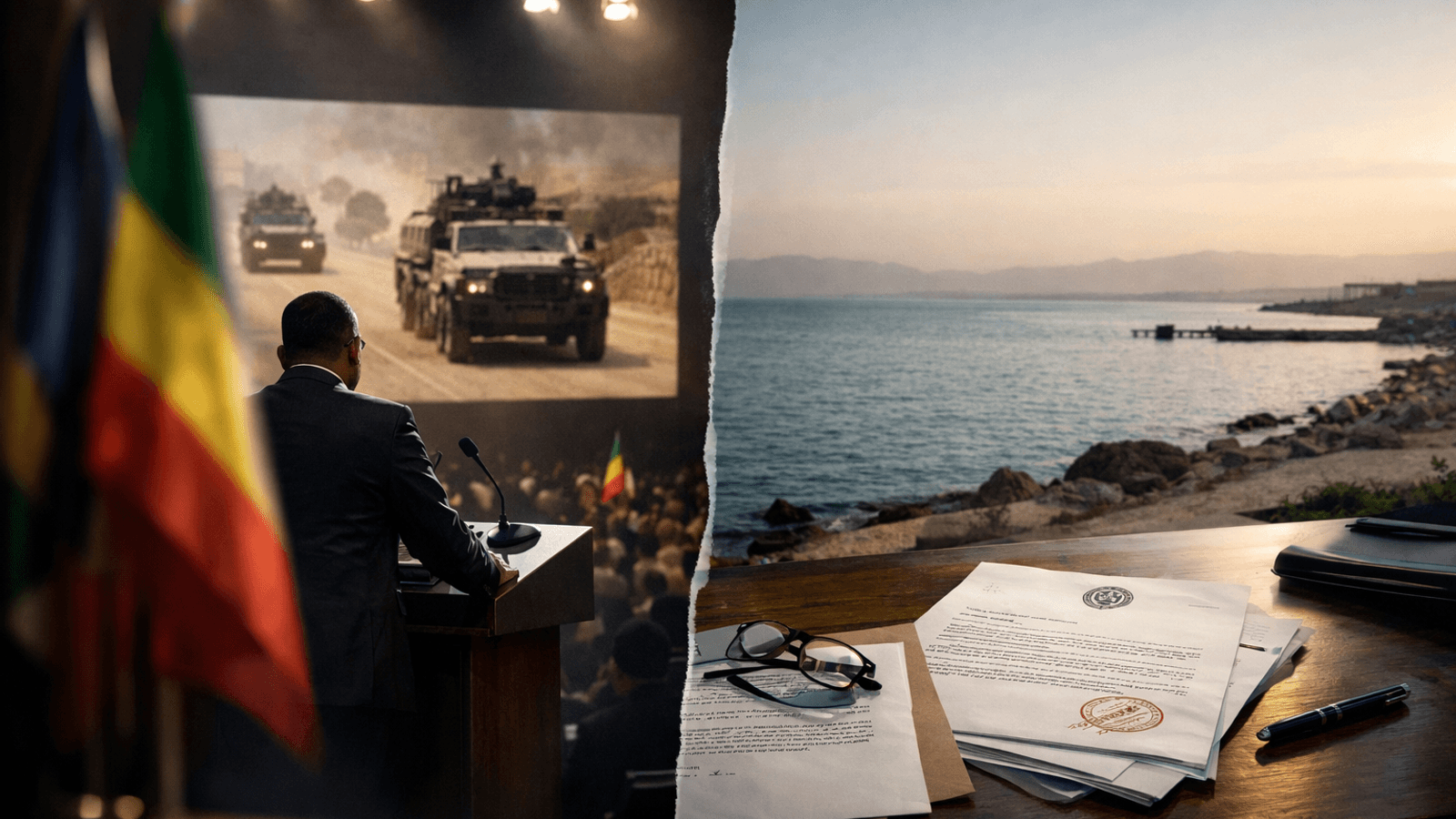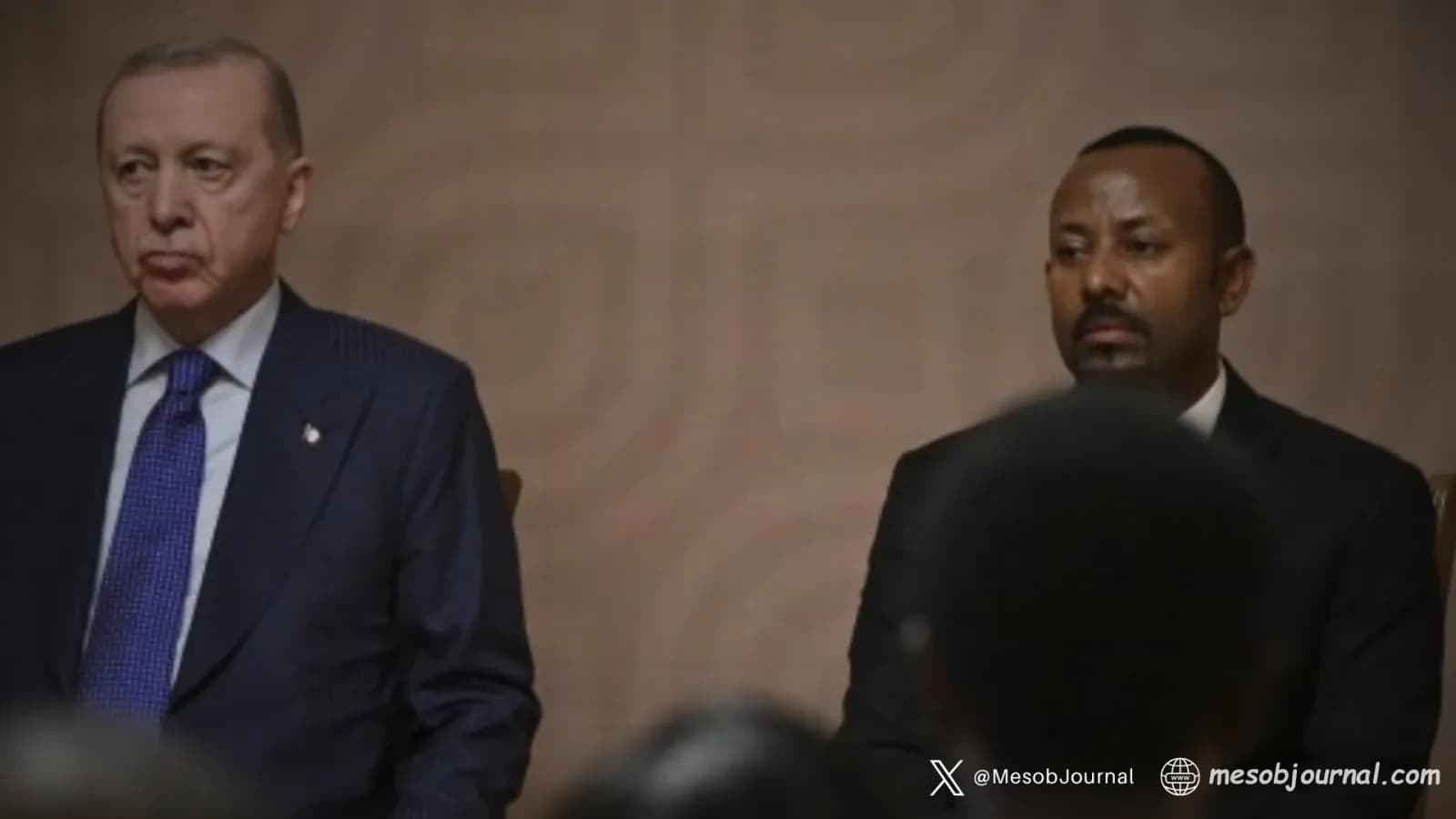Eritrea’s Call for a Just Global Order: From the Margins to the Heart of the Debate

When Eritrea’s Foreign Minister addressed the 80th United Nations General Assembly in New York, the words were not clothed in diplomatic vagueness. They carried the clarity of a nation that has endured sanctions, external pressure, and marginalization — yet still insists on voicing uncomfortable truths.
The heart of the statement was blunt:
“The cardinal challenge is how to bring about a new global order that promotes justice and fairness to supplant prevailing global governance architecture whose defining contours remain domination, plunder, deceit and repression.”
This is more than rhetoric. It is a sweeping indictment of the international system, paired with an alternative vision that situates Eritrea — and by extension Africa — within the struggle for global fairness.
The Historical Backdrop
Eritrea reminded delegates that the institutions of global governance have failed repeatedly. The League of Nations collapsed in the interwar period; the UN itself, though designed to prevent future wars and advance prosperity, has been captured by the same forces it was meant to contain. And in the past thirty years, the so-called “unipolar order” has worsened inequities instead of resolving them.
For Eritrea, this is not abstract history. It is lived reality. Sanctions imposed on the country for nearly a decade, long after UN panels themselves acknowledged the absence of evidence, remain a vivid example of how the system weaponizes procedures for political ends.
A Diagnosis of the Present
The speech catalogued the symptoms of a broken order:
- Economic injustice as a constant — from slavery to colonialism to the exploitative global economy of today.
- Domination as a method — whether through military interventions, financial architectures, or spheres of influence.
- Deception as a tool — propaganda, debt traps, and “development aid” that mask dependency.
- Africa as the epicenter of harm — where raw materials are drained cheaply, skilled labor migrates, and debt spirals under corrupt elites tied to foreign patrons.
What Eritrea laid out was not a critique from afar. It was a plea from within the continent, diagnosing Africa’s persistent subjugation as a structural outcome of the current order — not a misfortune of circumstance.
Aspirations That Refuse to Die
The statement also articulated what humanity still seeks, and what Eritrea insists cannot be postponed:
- Ownership of resources and fair enjoyment of their fruits.
- Peace and stability as preconditions for prosperity.
- Justice as the foundation of peace.
- Mutual respect and cohesion, instead of coercion.
- Legal structures that guarantee these principles.
These aspirations, the delegation argued, are timeless. They are not “new” or “ideological” — they are as old as humanity’s first fights against slavery and colonization.
From Critique to Prescription
Eritrea did not leave its statement at critique. It demanded action. Two points stand out:
- The lifting of coercive measures — unilateral sanctions, whether on Cuba, Eritrea, or others, were described as unjust instruments of repression that undermine any claim of global fairness.
- African agency — African states, the speech insisted, must devise their own robust mechanisms to confront these injustices and join wider international alliances working toward a new order.
This is not an isolationist call. It is an invitation to solidarity, to build a global movement rooted in resilience against domination.
Why Eritrea’s Voice Matters
For many in the hall, Eritrea’s words might have been easy to dismiss as a familiar tirade from a small state. Yet that would be a mistake. Eritrea speaks from a position of consistency. Since its independence, it has resisted clientelism, refused foreign military bases, and paid dearly for a stubborn insistence on sovereignty.
By linking its own experience to a broader structural critique, Eritrea is positioning itself as a moral voice — one that insists the debate on reforming global governance is not about tinkering with procedures but about dismantling the architecture of domination itself.
In an age of growing multipolarity, this resonates. Popular protests in the West over debt and inequality, Eritrea noted, are “only the tip of the iceberg.” The real crisis, it warned, is in the underdeveloped world — where the effects of this system are catastrophic.
The Old Truth
Eritrea’s intervention at the UNGA will probably not be the most quoted in Western media — and it was never designed to be. But it reflects a deeper undercurrent in international politics: the demand for a system that does not merely reform around the edges but fundamentally reorders power, wealth, and justice.
For Eritrea, the struggle is both existential and universal. Its words echo an old truth — that those at the margins often see the structures of power most clearly. And in today’s shifting world, the vision of justice and fairness it put forward may find more allies than ever before.
Related stories

The “Powder Keg” Script: Crisis Group’s Eritrea Bias
International Crisis Group’s 18 February 2026 briefing advertises itself as conflict prevention. In reality, it performs something closer to narrative management: it repackages Ethiopia’s Red Sea ambition as a “grievance” to be accommodated, while keeping Eritrea boxed into the f

Ethiopia: Abiy's War Script and the Media’s False Balance on Eritrea
The lazy framing is already being warmed up: “tensions are rising,” “neighbours trade claims,” “both sides must de-escalate.” It sounds responsible. It reads balanced. And it quietly deletes the one fact that matters: one side has spent years normalising war talk as policy. If y

Erdogan in Addis: sovereignty first as Abiy beats sea-access drum
Abiy Ahmed tried to stage the usual Addis photo-op when Turkey’s President Recep Tayyip Erdoğan arrived. But the camera caught something different: a stiff, guarded prime minister sitting beside a visitor who didn’t look like he came for flattery. What played out at the joint app

Fenkil’s Dawn: The Martyrs Who Made Eritrea Unbowed
Some victories are celebrated once. Others are lived—every day—like a vow you can’t afford to break. At Twalet, the Tanks Don’t Rust In Massawa, the Red Sea air has a way of softening everything—except memory. You can feel it near Twalet, where three tanks stand fixed as a monume

